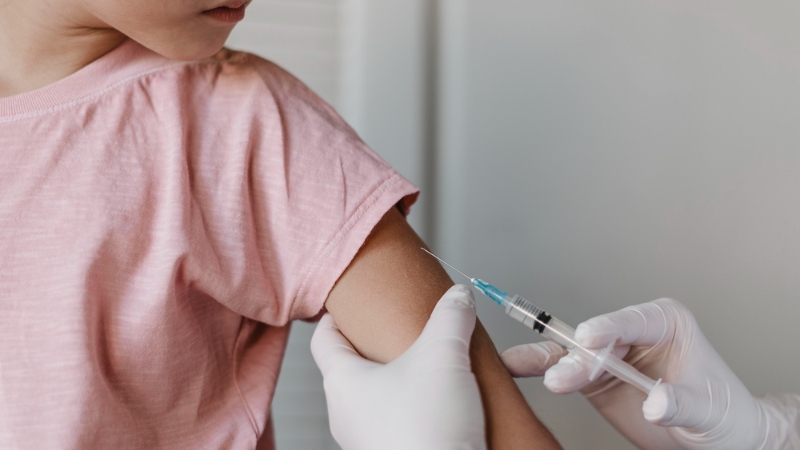Childhood Vaccinations"Building Immunity for a Healthy Future."

In our medical practice, we stress the importance of childhood vaccinations in protecting your child's health and wellbeing. Understanding how important vaccinations are in preventing dangerous illnesses, our immunization programs are made to offer complete protection. We will go over the importance of childhood vaccinations, the vaccines we give, any possible concerns, and our dedication to making sure your child has a solid foundation for lifelong health in this part.
What Are Childhood Vaccinations?
Vaccinations against numerous infectious diseases are given to children as part of a preventive practice called childhood vaccinations, or immunizations. By boosting immunity and lowering the risk of dangerous infections, these vaccinations train the immune system to identify and combat particular microorganisms.
Why Are Childhood Vaccinations Essential?
- Disease Prevention: Immunizations against measles, mumps, rubella, polio, and other dangerous and sometimes fatal infections are essential for children.
- Herd Immunity: By protecting those who cannot receive some vaccines, such as infants, those with specific medical disorders, or people with compromised immune systems, vaccinations help to create herd immunity.
- Reducing Spread of Disease: Those who have received vaccinations are less likely to have infectious diseases and to distribute them to others, which helps to lower the total rate of disease transmission in populations.
- Protecting Vulnerable Populations: Immunizations aid in the protection of vulnerable groups, such the elderly and neonates, who may be more prone to serious side effects from specific diseases.
Possible Risks:
Although children vaccines are generally safe, some people may have the following modest adverse effects: edema or pain where the injection was made, Fever of low grade, Intolerance, Light rash Short-term discomfort
Benefits of Childhood Vaccinations:
- Preventive Health Measure: Getting vaccinated is a proactive way to stay healthy since it stops diseases in their tracks.
- Reduced Severity of Illness: Even in cases where a child receives a vaccine that prevents the sickness, complications are less common and the illness's severity is frequently lessened.
- Community Well-Being: Families make a safer environment for everyone and improve the general well-being of their communities by taking part in immunization programs.
- Global Health Impact: As part of global health initiatives, childhood vaccines help manage and eradicate certain diseases globally.
The foundation of preventive healthcare is childhood vaccines, which protect against major illnesses and enhance the general health of communities and children. Ensuring the health and safety of the future generation can be done responsibly and effectively by adhering to the approved vaccination schedule.
Top Asked Questions and Answers:
FAQ (Frequently Asked Questions):
+91-9144411108
Emergency Cases

